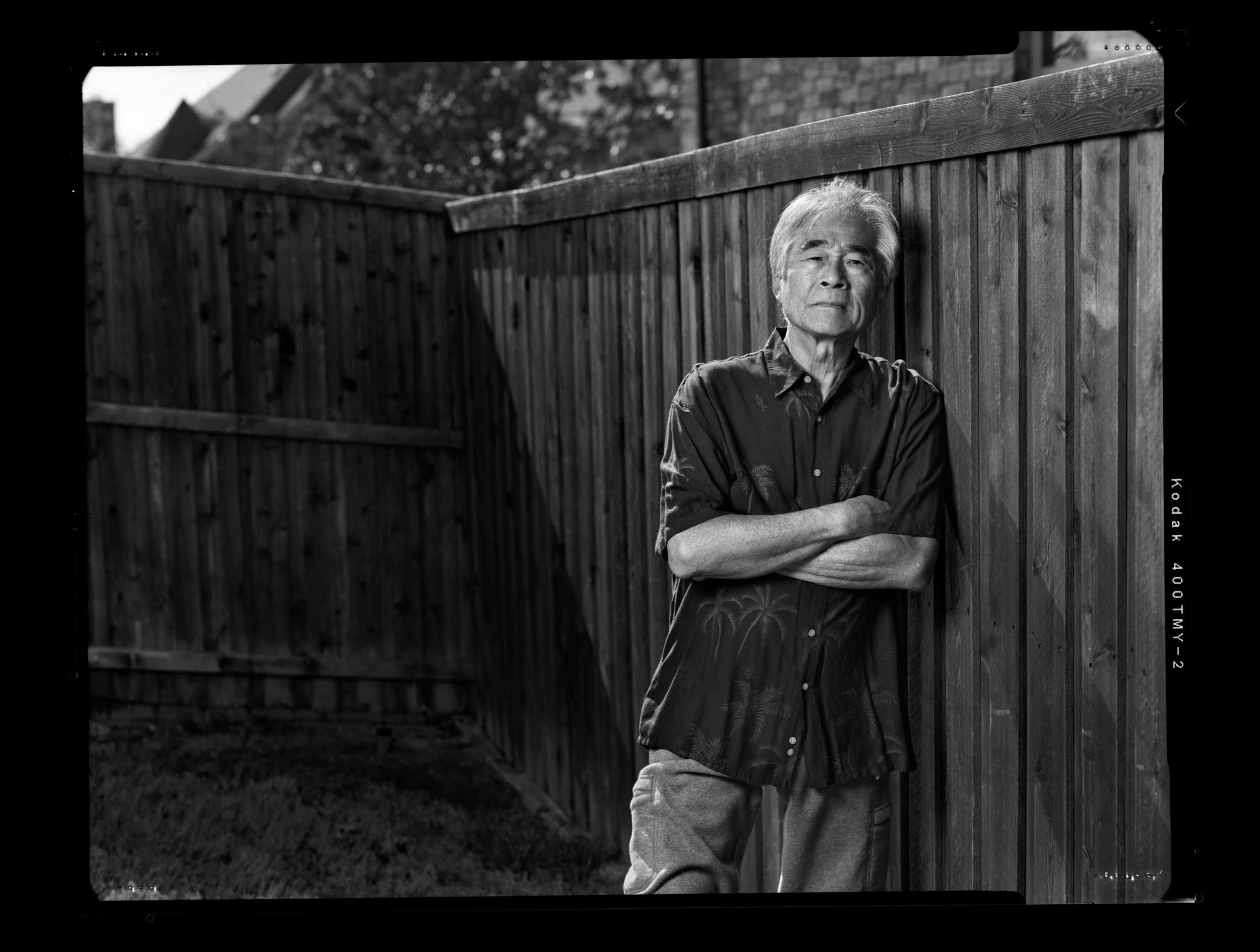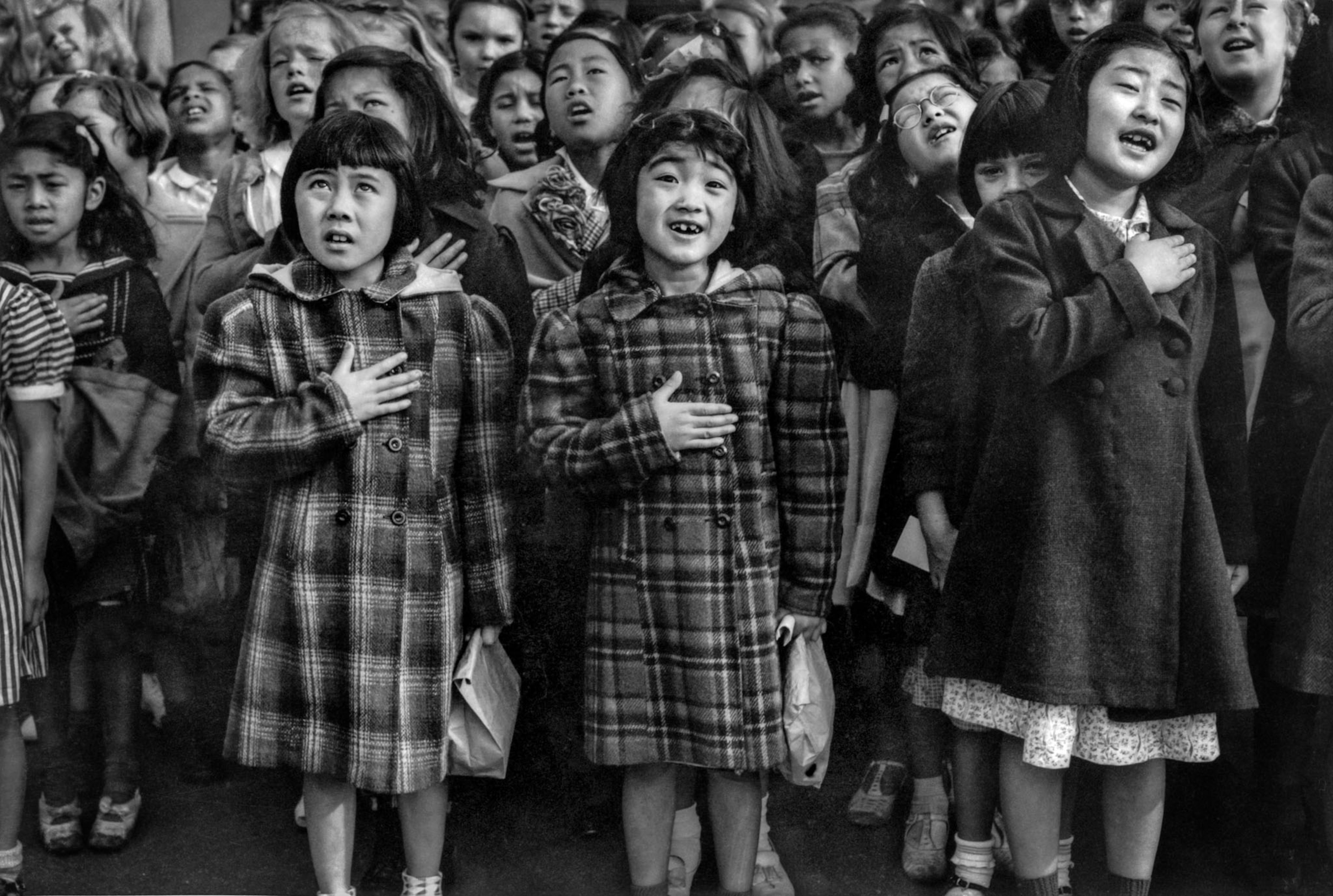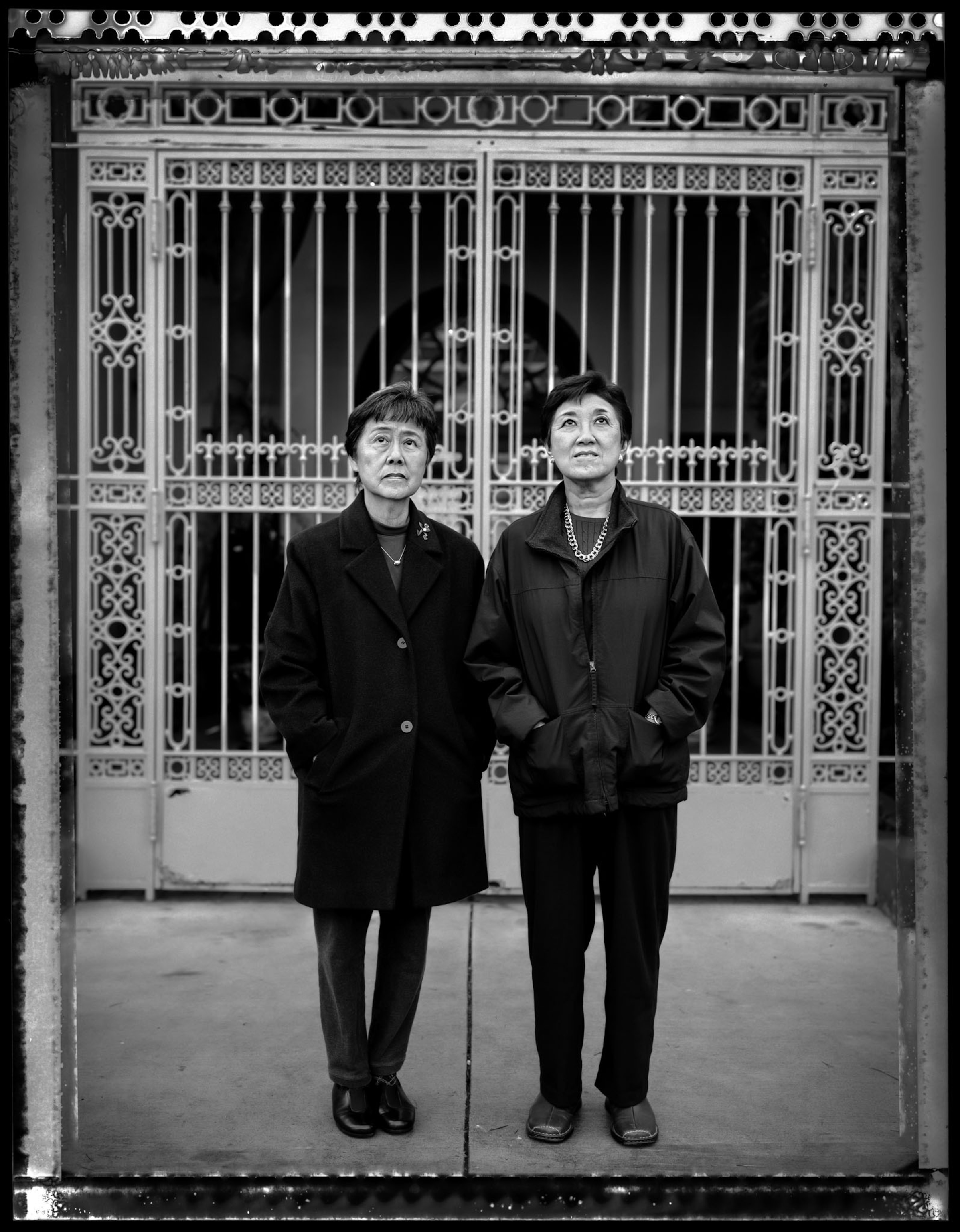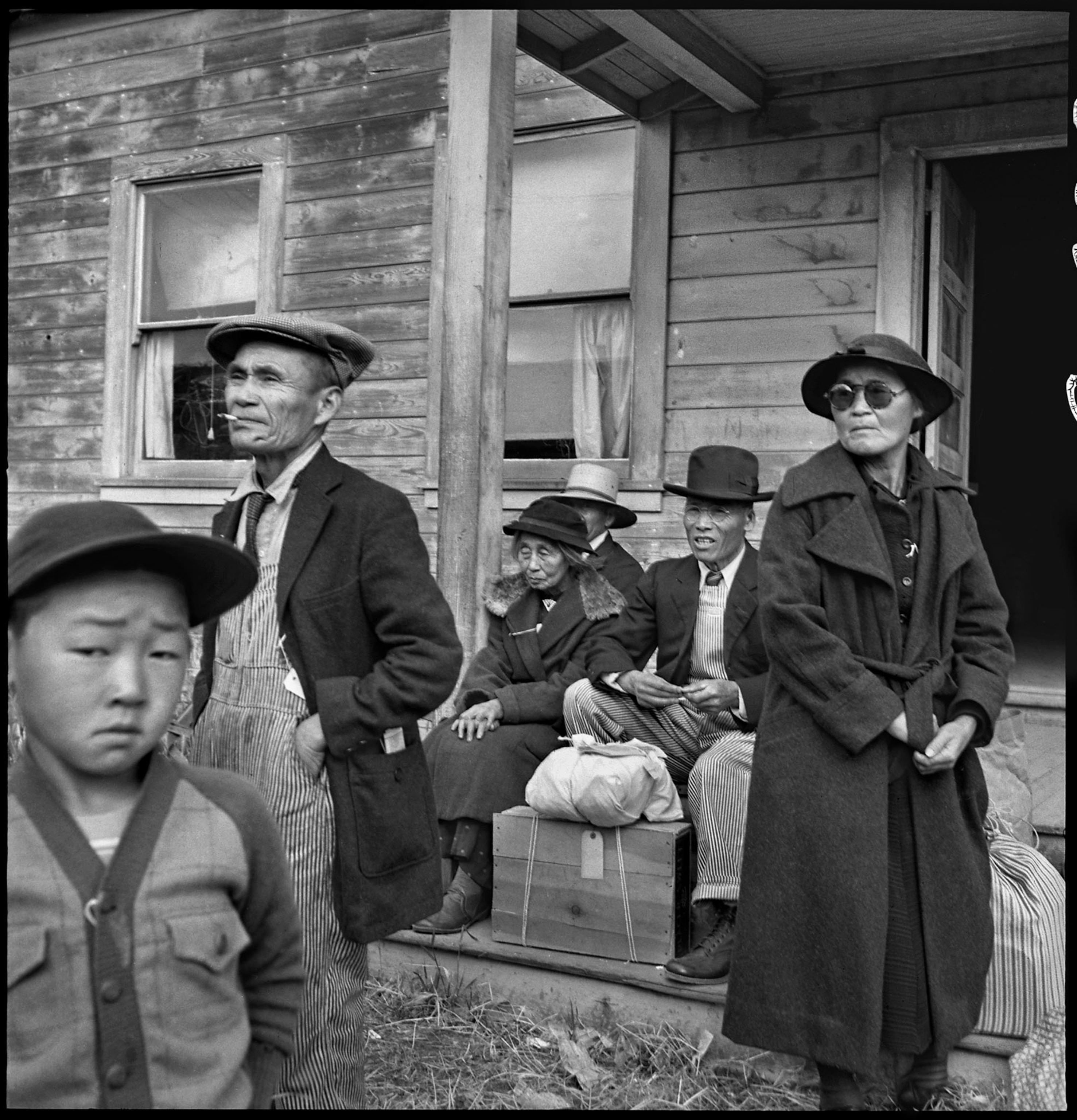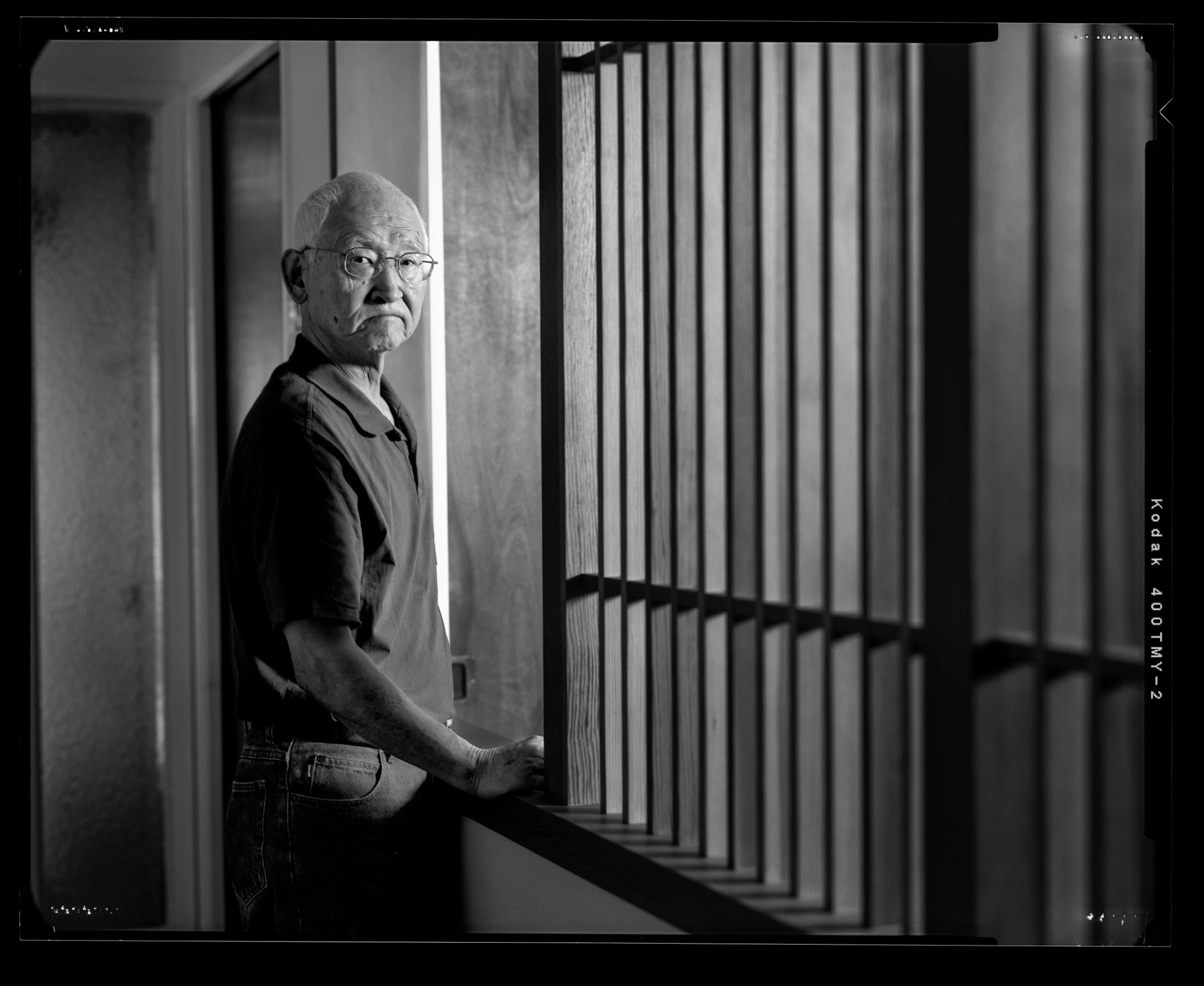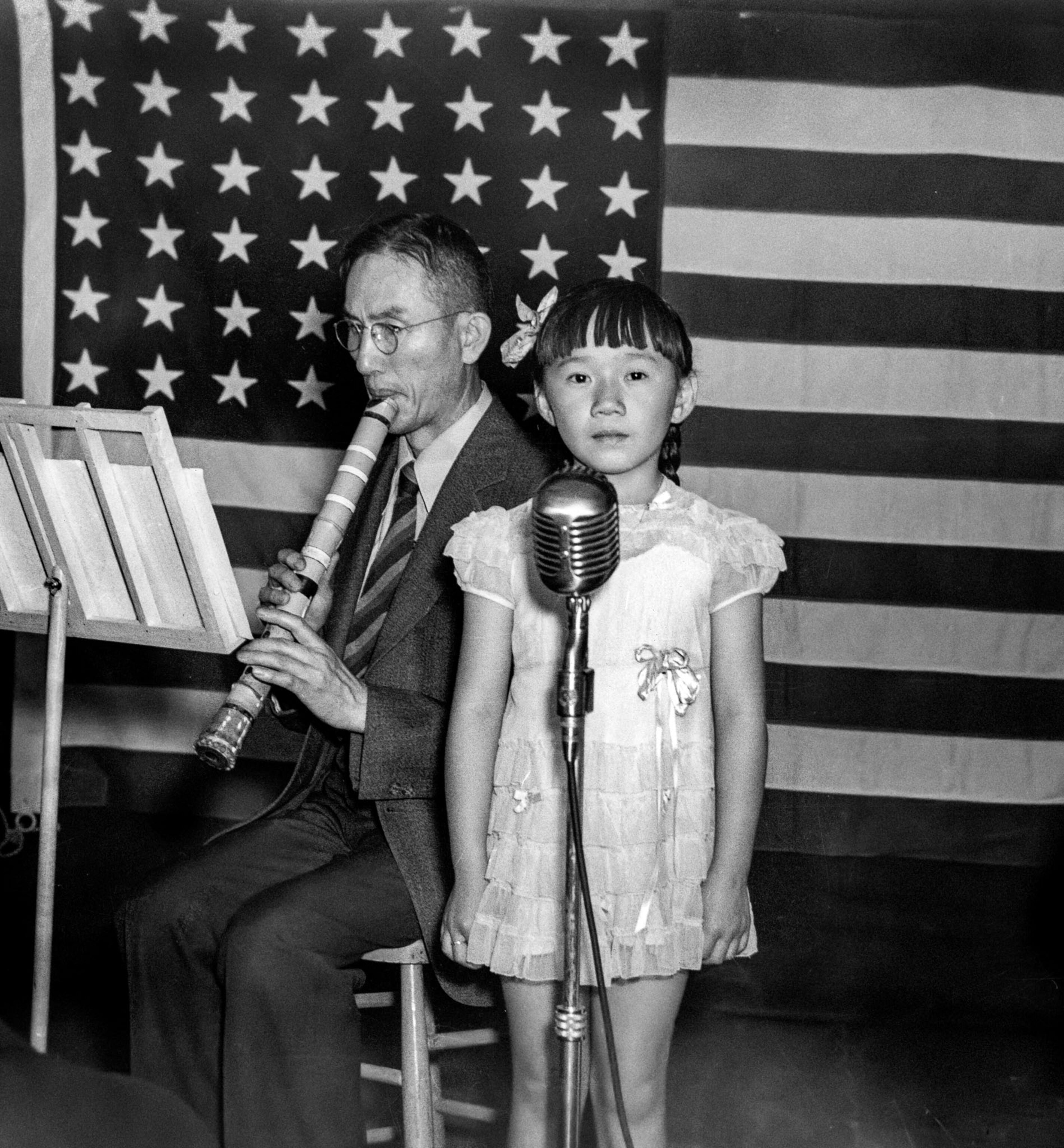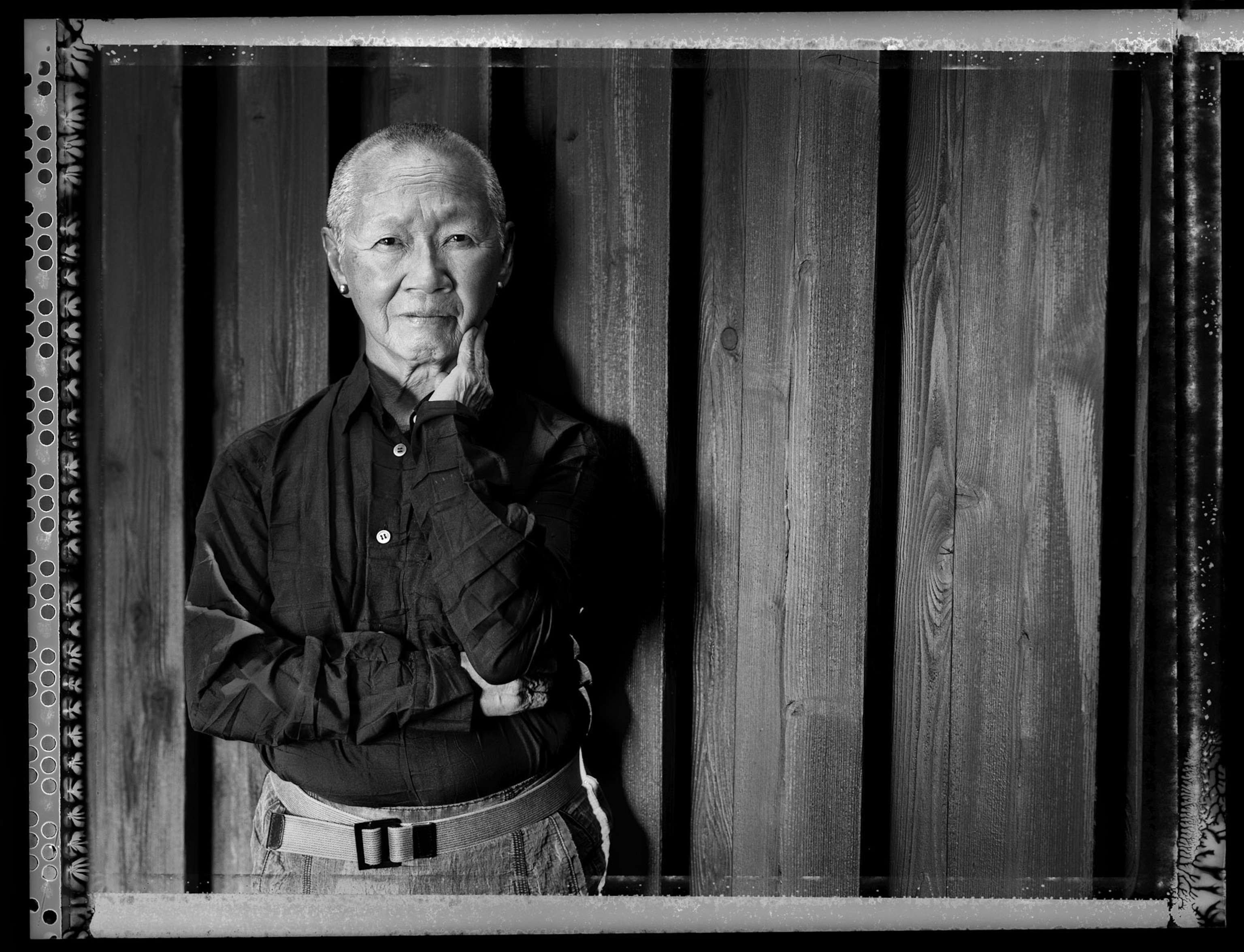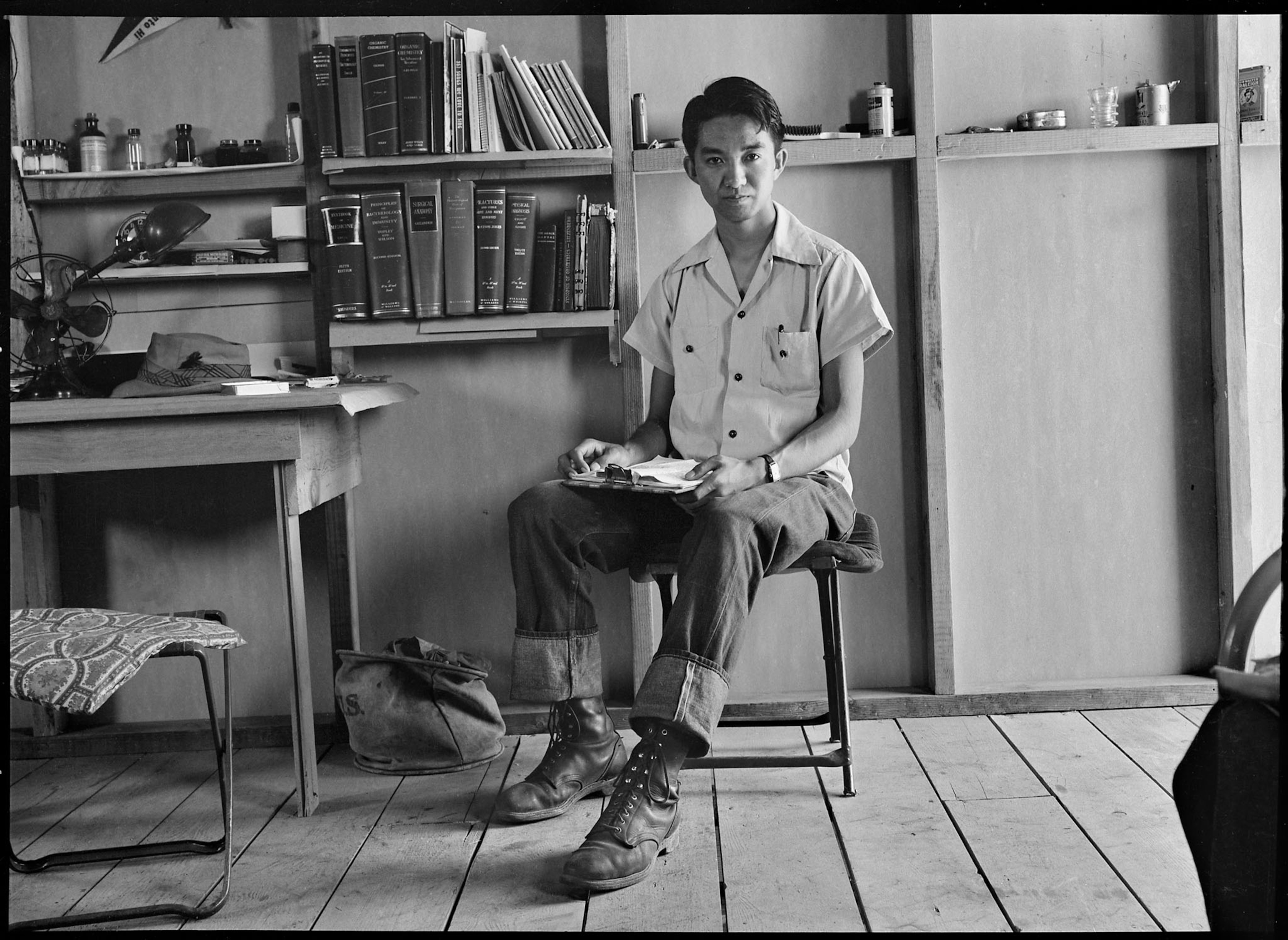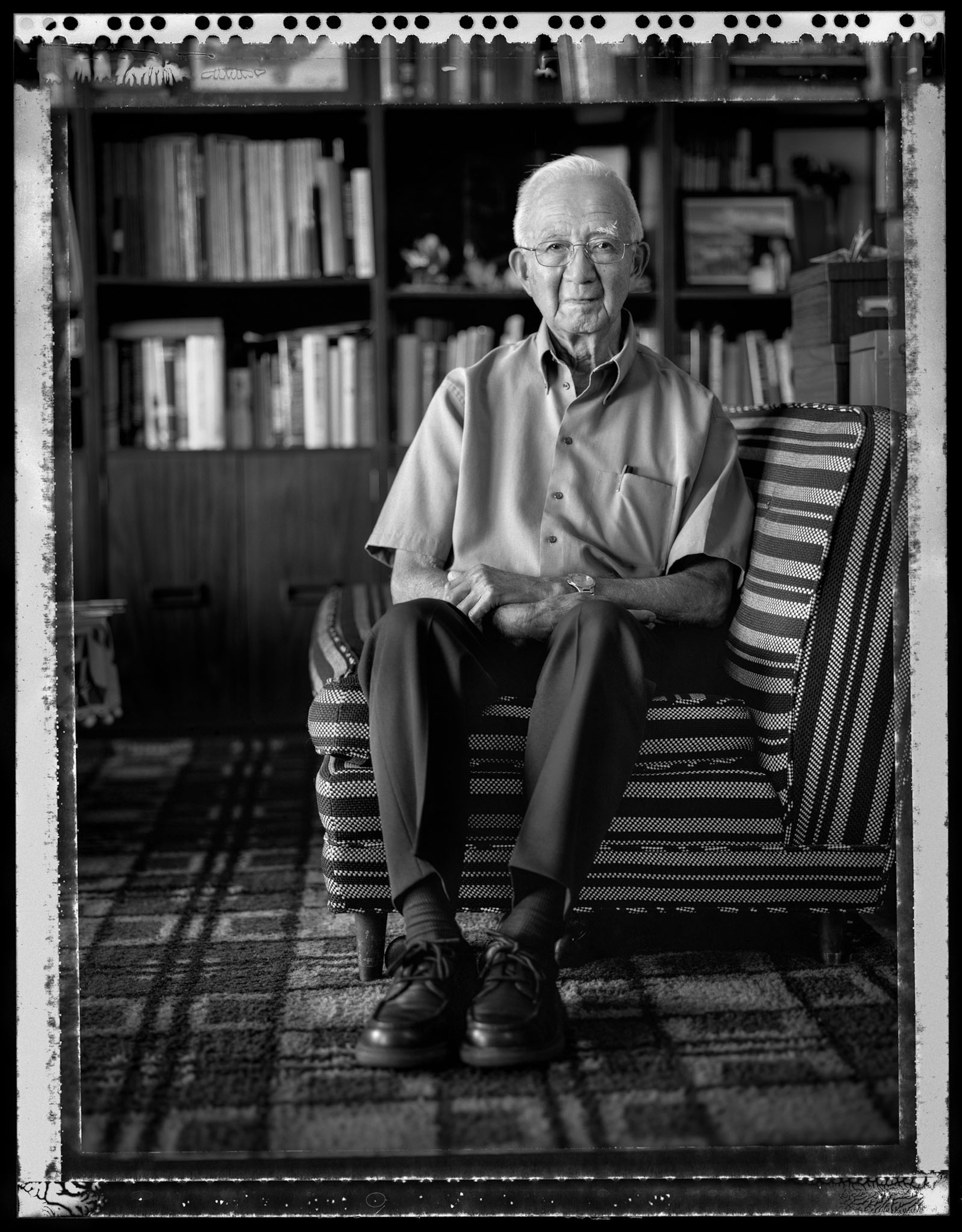
Scenes from the Japanese Internment Resonate Today
When the U.S. government held more than 120,000 civilians captive during World War II, it left an enduring stain on the nation.
Quite by chance, in the small-town public library of Ashland, Oregon, while searching for an engaging book to read, I was confronted by their faces: Asian children, in a black-and-white photograph, smiling incongruously from behind a barbed wire fence.
“Where could this have happened?” I wondered, thinking it was somewhere in Southeast Asia, maybe part of the Vietnam War, as I peered deeper into the pages. That was the moment I first learned, at 17, that civilians of Japanese ancestry had been rounded up and confined in America during World War II. It was even more surprising, as I am the daughter of a Japanese immigrant.
What caused America to lock up more than 120,000 civilians, two-thirds of them U.S. citizens, without due process during the war? Even now Junzo Jake Ohara struggles to answer the question. “I think it was probably because of prejudice; I don’t know,” says Ohara, 89, who was confined for three years. “They were afraid of us, I guess.”
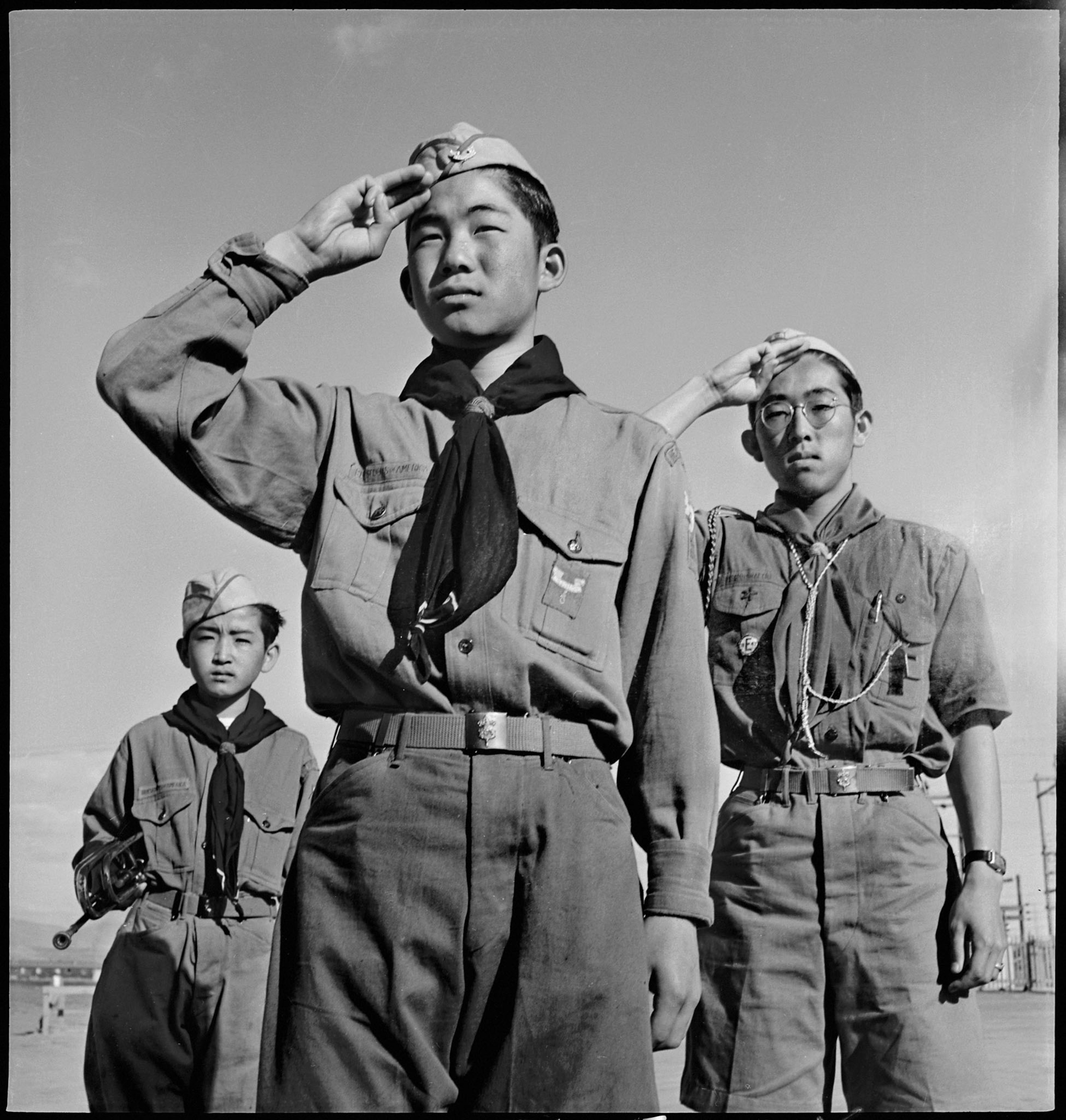
The answer, according to the historical record, lies not just in fear and prejudice but in the power of politics to exacerbate both. And it reveals a great nation locked not just in a world war after a devastating attack but also in a painful struggle with itself over its own ideals—a struggle still echoing nearly 80 years later. The incarceration is cited in today’s immigration debates, including over the detention of migrant children and families crossing the southern border in June and the current ban on people from several Muslim-majority countries from entering the United States.
The Commission on Wartime Relocation and Internment of Civilians was tasked by Congress in 1980 to investigate the U.S. government’s decision to confine people of Japanese ancestry during World War II. After an exhaustive review of government documents and gathering testimony from more than 750 witnesses, historians, and others, the commission concluded that forces had been moving against people of Japanese descent long before Japan attacked Pearl Harbor on December 7, 1941. Beginning in the late 1800s, a rising chorus of politicians and labor leaders was pointedly agitating against Japanese immigrants, accusing them of taking farming jobs away from Caucasian Americans.
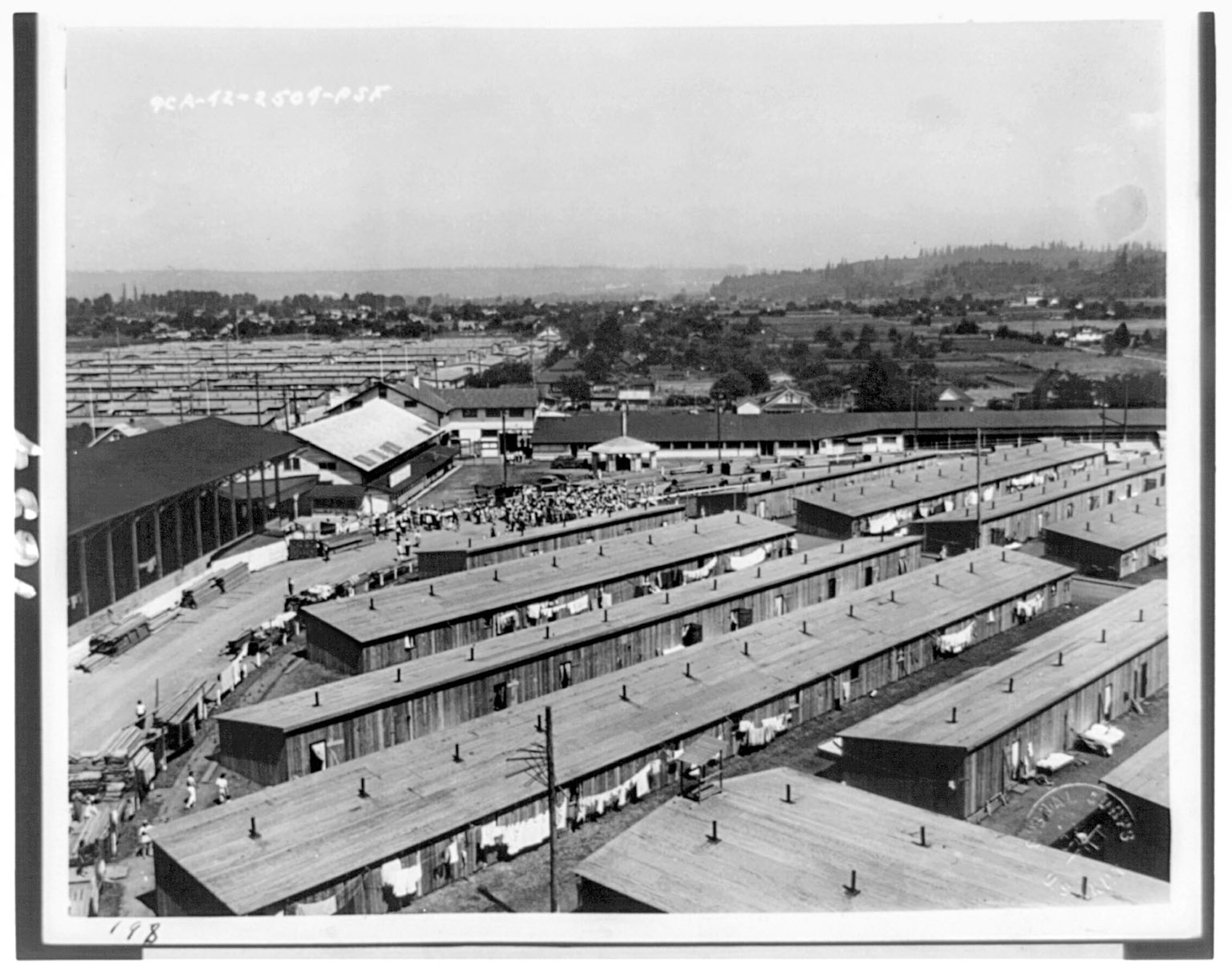
On May 7, 1900, San Francisco Mayor James Duval Phelan had said, “Chinese and Japanese are not bona fide citizens. They are not the stuff of which American citizens can be made.”
The American Federation of Labor lobbied Congress to legally exclude all “Mongolian” labor. An editorial in the San Francisco Chronicle agreed: “Our first duty is to preserve America for the Americans and the white races whom we can assimilate, and whose children will have the American standard of life.”
A pattern soon emerged, constraining the freedoms of people of Japanese ancestry. First, immigration from Japan was limited by an unwritten agreement. Japanese people were not allowed to own land in California. It became illegal for anyone with Japanese ancestry to marry a Caucasian. Then, in 1924, Congress approved an immigration ban on all Asians, including Japanese people, saying that they could not become citizens, no matter how long they lived in the United States. Only their children, if born in the U.S., could be citizens, as guaranteed by the Constitution. The nation’s leaders made it clear that Japanese people were not wanted in America.
We were American citizens, but the government says, ‘Regardless of nationality, you got citizenship, but you are still Japanese. We could not trust you.’George Hirano, Below left, pictured in 1942

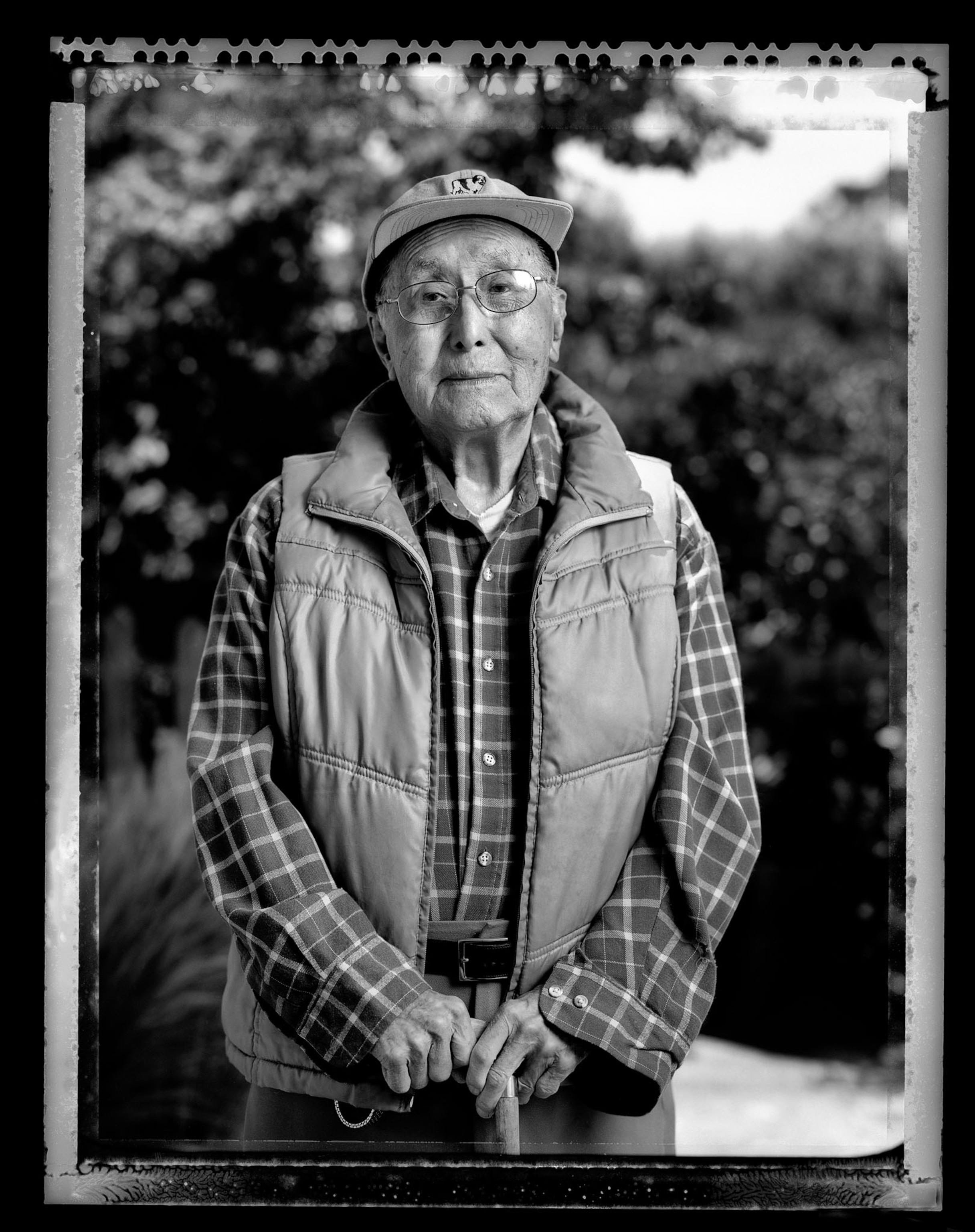
The animosity intensified in the 1930s as Japan invaded Manchuria and then expanded into China.
By the time Japan staged its surprise attack on Pearl Harbor, shocking America into war by killing or wounding more than 3,500 people and crippling the U.S. fleet, it was like a match igniting layers of dry tinder for people of Japanese ancestry in the United States. Fury roared across America as Japan moved aggressively in the Pacific, capturing Guam, Wake Island, and Hong Kong and forcing the surrender of U.S. troops in the Philippines.
Fear that Japan could soon invade the U.S. West Coast gripped America, as did fast-spreading misinformation. Unfounded rumors circulated that people of Japanese ancestry in Hawaii had aided in the attack on Pearl Harbor.
U.S. Navy Secretary Frank Knox gave credence to the conspiracy theory as others demanded drastic action against people of Japanese ancestry. “Each of our little Japanese friends will know his part in the event of any possible attempted invasion or air raid,” Los Angeles Mayor Fletcher Bowron said. “We cannot run the risk of another Pearl Harbor episode in Southern California.”
Few, including the media, questioned whether action against people of Japanese heritage was justified or moral. Instead they joined the chorus. As the congressional commission would later put it, “The press amplified the unreflective emotional excitement of the hour.”
On February 14, 1942, the man in charge of military security in the West, Army Gen. John L. DeWitt, recommended that people of Japanese ancestry be excluded from the West Coast as a military necessity: “In the war in which we are now engaged racial affinities are not severed by migration. The Japanese race is an enemy race and while many second and third generation Japanese born on United States soil, possessed of United States citizenship, have become ‘Americanized,’ the racial strains are undiluted.”
The Justice Department initially opposed the recommendation but ultimately went along with it, once it became clear that President Franklin D. Roosevelt would approve it. Ten weeks after the attack on Pearl Harbor, on February 19, 1942, Roosevelt signed Executive Order 9066, giving military leaders broad powers to round up and incarcerate “any or all persons.” It was well known this meant people of Japanese ancestry, including U.S. citizens. Congress moved quickly to support the order. Few politicians stood up against the tide, but one who did was Colorado Governor Ralph Carr, a Republican who considered Roosevelt’s order inhumane. At one point, faced with a large and hostile audience threatening violence, he said, “An American citizen of Japanese descent has the same rights as any other citizen,” adding, “If you harm them, you must first harm me.” It was a position that would doom a promising political career. A small group of churches also protested. Writer Pearl S. Buck and civil rights activist W.E.B. Du Bois joined in a petition against the order. But few listened.
In March U.S. Army soldiers started knocking on doors and posting evacuation orders in targeted neighborhoods in California, Oregon, Washington, and Arizona, using data quietly provided by the U.S. Census Bureau. People could bring only what they could carry and were forced to dispose of everything else they owned within weeks, sometimes days. Some sold all their assets to scavengers at incalculable financial losses. Others piled possessions into improvised warehouses in family garages, leased their homes, or found caretakers for their property. Many of these storehouses would be ransacked, many rents would go unpaid, and many caretakers would betray these families’ trust, selling off or abandoning their belongings. Each family was assigned a number, which was written on tags that hung from luggage and people alike and defined their new identity. The military moved so efficiently that temporary “assembly centers” were set up at fairgrounds and racetracks while “relocation centers” were being built. The Santa Anita racetrack in Los Angeles was the largest assembly center, with more than 18,000 people, and one of several where people were forced to live in horse stables. Confined as a boy at Tanforan racetrack in San Bruno, Kiyoshi Katsumoto remembers walking around the stables with friends when they heard a cry. “It was muddy; it stank to high heaven,” Katsumoto recalls. “We peeked inside, and there was a woman sitting on a cot, wailing her head off. They had whitewashed the walls, but you could see the horse manure and horsehair stuck on the walls. That memory has never left my mind.”
People stayed in the assembly centers for months before they were moved, most by train, to 10 camps in remote mountains, deserts, and other inland areas. A government film produced at the time called it a “mass migration” to “pioneer communities” on desert lands “full of opportunity,” adding, “We are protecting ourselves without violating the principles of Christian decency.” The congressional commission that investigated the incarcerations later described it much differently, documenting “harsh” conditions, including “hard winters” and “unbearably hot and humid” summers in which people were forced to live in uninsulated and hastily built “tar paper barracks” that were “bleak” and “spartan,” with one room per family, in camps surrounded by “barbed-wire fences.” Military police manned watchtowers with machine guns and searchlights, and people perceived to be violating the boundaries were shot.
Though America’s decisive victory in the Battle of Midway in June 1942 diminished fears of a Japanese attack on the U.S. mainland, the camps did not close. Eventually some Japanese Americans designated as loyal were allowed to leave, but most had to stay against their will, the months turning into years. More than 5,000 babies were born in detention. Close to 2,000 people died, including Torazo Sakawye in Manzanar camp, at age 67. “He passed away, I think, more or less, of a broken heart,” his grandson Walter Yoshiharu Sakawye says, adding, “He hadn’t done anything wrong.”
I felt like something exciting was happening.
I didn’t understand.Dorothy Hiura, Below, pictured in 1942
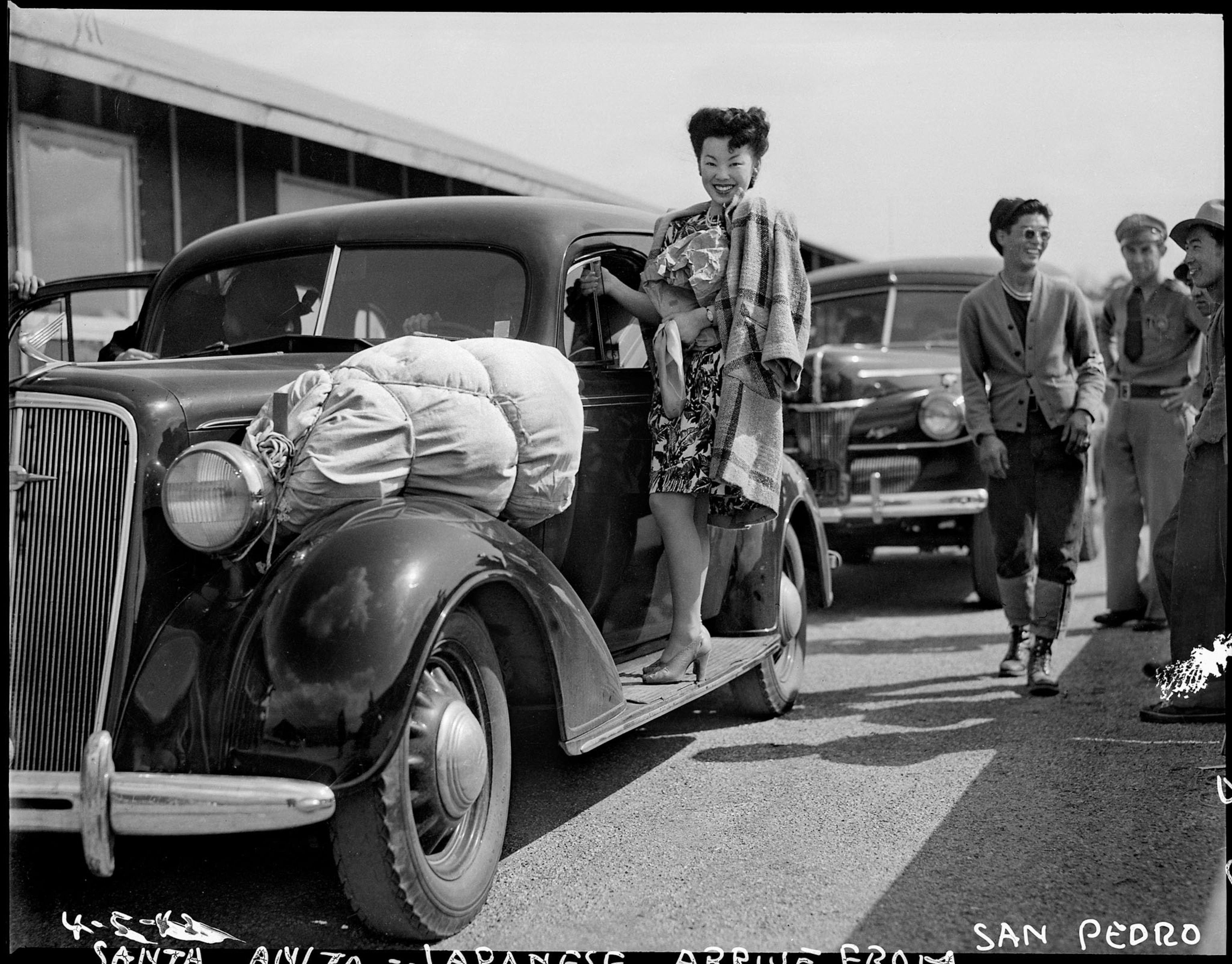
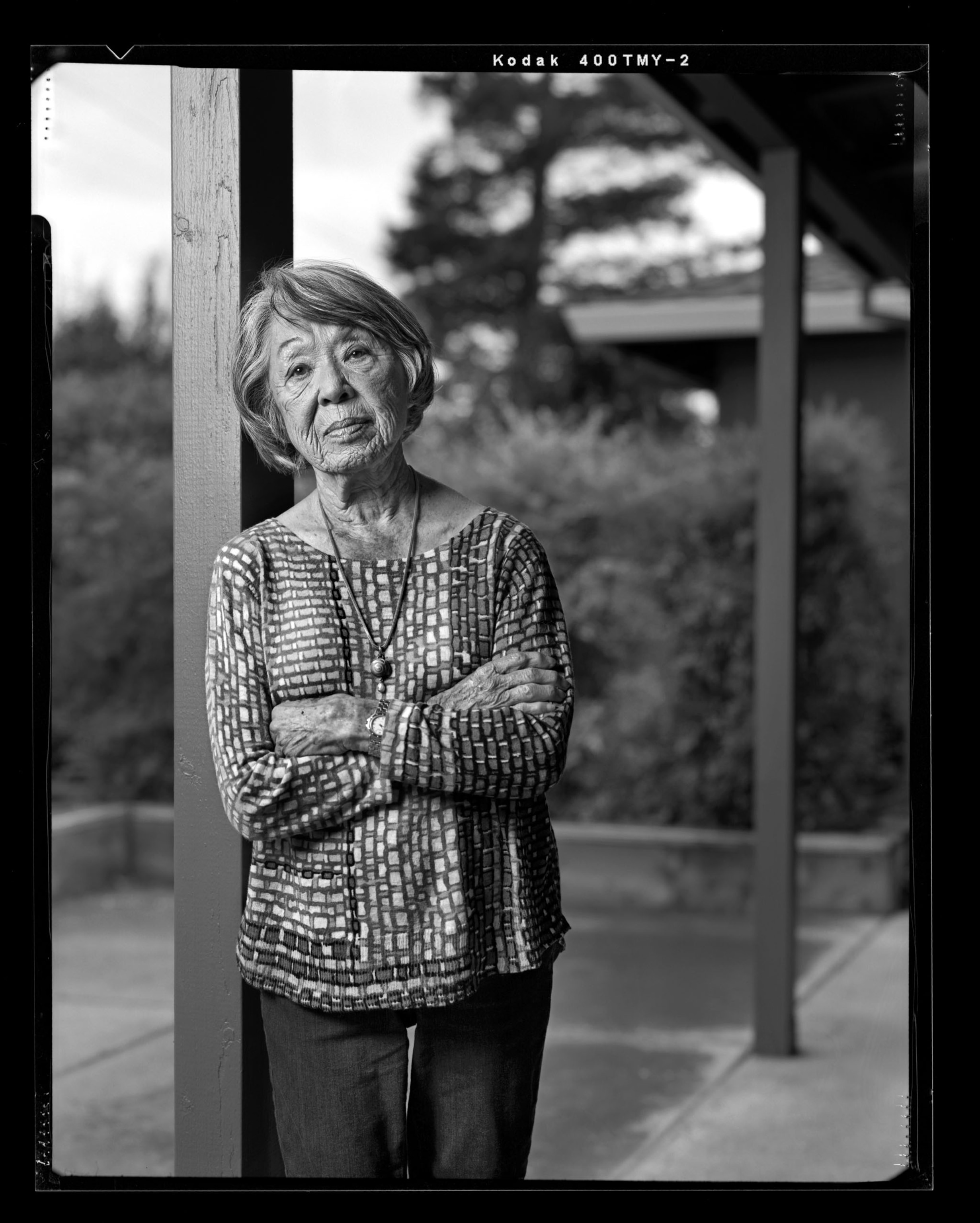
Some resisted. A young man named Fred Korematsu refused to comply with the order, remaining in San Leandro, California, after the Army declared it a “military area” that was off-limits to all people of Japanese ancestry. Korematsu was convicted of ignoring an exclusion order. He appealed his conviction all the way to the U.S. Supreme Court. Justice Frank Murphy wrote that treating those of Japanese descent differently from people of Italian or German descent whose ancestral nations also were at war with the U.S. was the “legalization of racism.” But the court voted six to three to uphold the conviction, agreeing with the government that the actions were a military necessity.
The justices didn’t know that a Navy intelligence report had found that Japanese Americans posed no military threat and showed no evidence of being disloyal, of being spies, or of signaling submarines, as the government had argued. They didn’t know, the government acknowledged in 2011, because the U.S. solicitor general during World War II had deliberately hidden the intelligence report from them.
The high court finally repudiated its 1944 decision this past June. Chief Justice John G. Roberts, Jr., wrote that forcing U.S. citizens into “concentration camps, solely and explicitly on the basis of race, is objectively unlawful and outside the scope of Presidential authority,” 13 years after Fred Korematsu had passed away. Roberts’s condemnation of the U.S. Supreme Court’s earlier decision allowing the government to imprison Japanese Americans came as the court upheld President Donald Trump’s ban.
As America was fighting World War II, the military realized it needed more soldiers to fight. A unit made up almost entirely of Japanese Americans, the 100th Infantry Battalion, was sent to Europe. Roosevelt asked for volunteers for a second mostly Japanese-American unit: the 442nd Regimental Combat Team. More than 10,000 Japanese Americans in Hawaii answered the call for 1,500 volunteers. In the camps, where Japanese Americans chafed at the loss of their fundamental rights as citizens, several hundred would take a stand against serving until their families were set free.
Others saw enlisting as a chance to prove their loyalty, and some 1,000 young men in the camps volunteered. As U.S. Senator Daniel Inouye, who volunteered for the 442nd from Hawaii, would recall years later in a History Channel documentary, “All of us, in addition to fighting the enemy, had a goal … to redeem our name, to uphold our honor. Failure was almost impossible. You had to succeed.”
Succeed they did. In seven major campaigns the 442nd suffered 9,486 casualties, including 600 killed. The unit received seven Distinguished Unit Citations and 18,143 individual decorations, including more than 3,600 Purple Hearts, becoming the most decorated combat unit for its size in U.S. history. The 100th, which became known as the Purple Heart Battalion, merged with the 442nd on June 15, 1944. The combined unit fought in key battles: first across Italy at Mount Belvedere, Luciana, and Livorno, enduring heavy casualties to cross the Arno River, and then even heavier losses while rescuing a lost battalion of 200 Texans caught behind enemy lines in the Vosges Mountains in France.
After the war, President Harry Truman greeted the 442nd in Washington, D.C. “You fought not only the enemy, but you fought prejudice—and you’ve won,” he said. But prejudice would take longer to defeat: Japanese Americans endured anger, racial slurs, and discrimination in the years to come, though no evidence was ever found of disloyalty or wrongdoing by any American of Japanese ancestry during World War II.
After the camps began to close in 1945, the Los Angeles Herald ran a front-page photo of Mary Masuda and her parents, who were among the first to return home. The photo, taken on December 8, four years—to the day—after the United States declared war on Japan, shows Army Gen. Joseph Stilwell saluting Mary and her family. He also pinned a Distinguished Service Cross on Mary in honor of her brother, Staff Sgt. Kazuo Masuda, who died fighting in the 442nd Regimental Combat Team. Mary’s two other brothers, who also had served in the Army, witnessed the moment along with others, including a young actor named Ronald Reagan.
As president in 1988, Reagan would recount that ceremony before signing H.R. 442, a bill named in honor of the 442nd. It provided $20,000 in restitution to each of the 60,000 people still alive who had been incarcerated. “No payment can make up for those lost years,” Reagan said, adding that people had been put into the camps “based solely on race,” which was “a mistake” and “a grave wrong.”
Junzo Jake Ohara, now 89, says that his father never fully recovered from the struggle to rebuild his life and the shame of having been considered disloyal. “He had a mental breakdown,” Ohara says, and “would walk the long way around, so he didn’t have to see anyone he knew.”
The emotional cost of what would be called the “Japanese internment” has been underestimated, says Satsuki Ina, who was born in captivity and is now a trauma therapist specializing in the Japanese-American experience. “The public sees it as relocation. The language has been modified to look like the government took care of us. But it was an arrest. I am seeing people who were young adults when they were incarcerated who now in old age are trying to make sense of what happened,” she says.
The language used to describe the U.S. government’s forced removal of people of Japanese ancestry from their homes and into camps is still debated. “Assembly centers” were temporary detention centers where families were processed and sometimes remained for months before being sent to “relocation centers,” the incarceration camps where many families were forced to live for years.
“We gave the fancy name of ‘relocation centers’ to these dust bowls, but they were concentration camps nonetheless,” U.S. Secretary of the Interior Harold Ickes said in 1946.
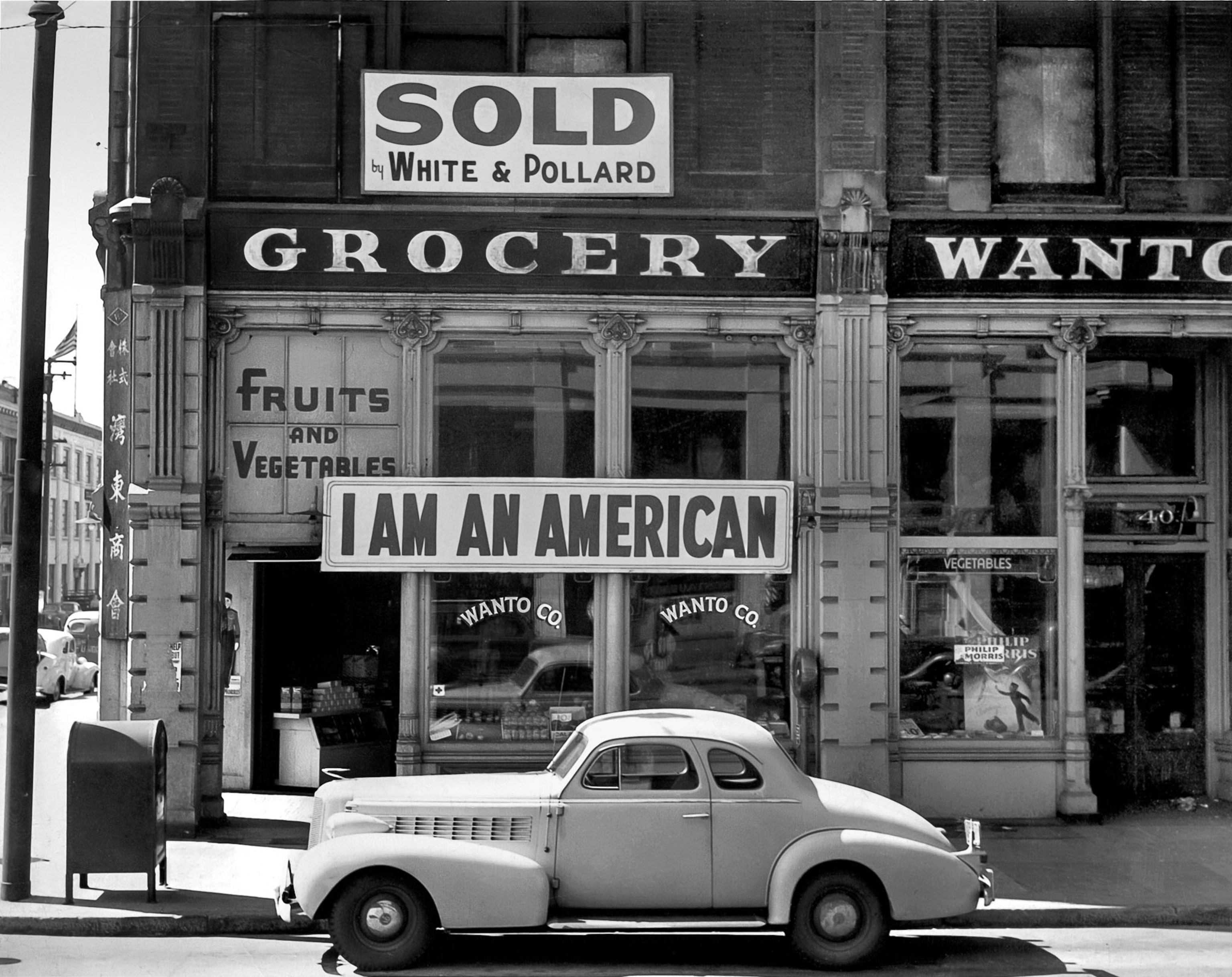
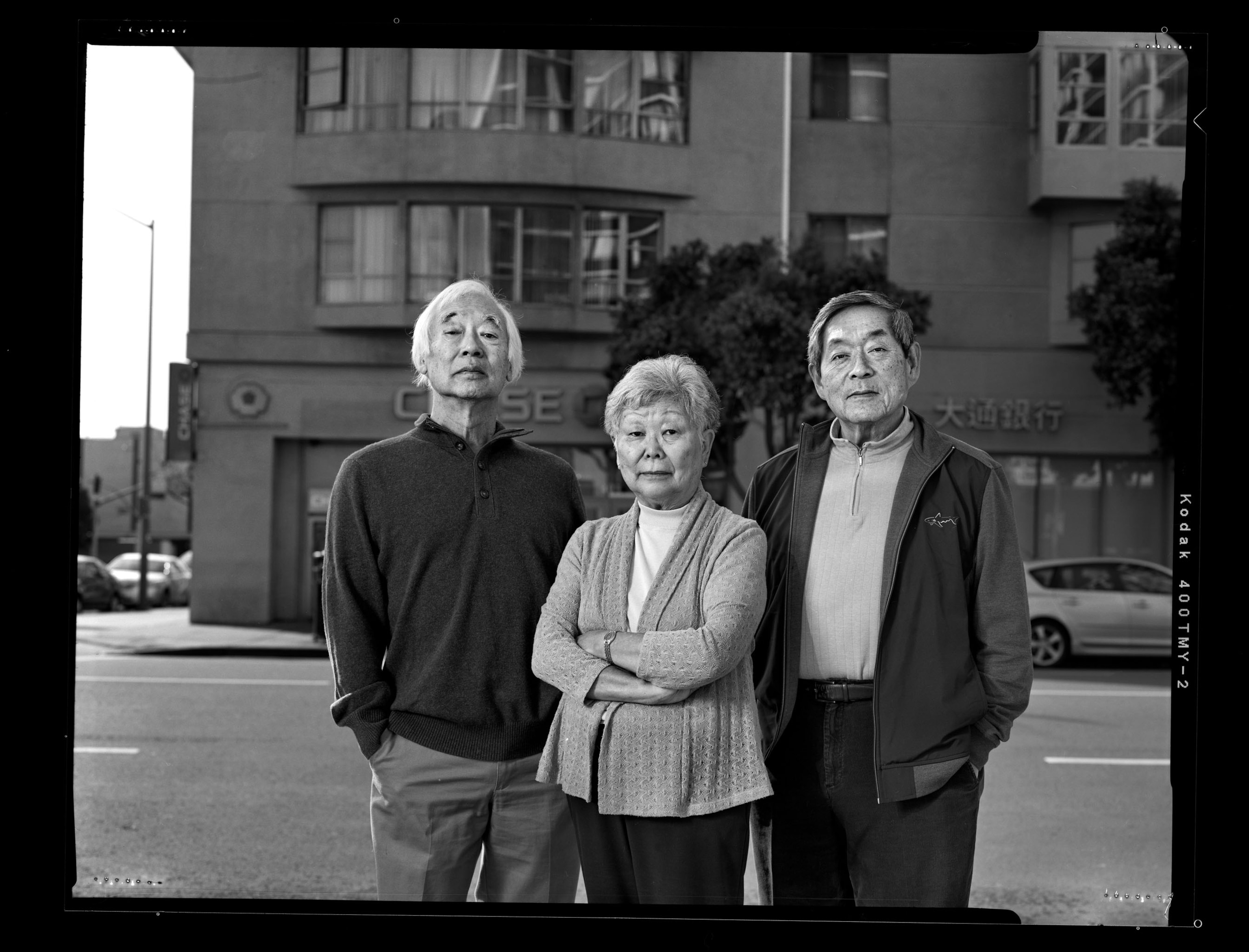
They would say, ‘Oh, yeah, they’re camp friends.’ There were never any open conversations about camp life.Ted Tanisawa, Pictured above at right
The numbers placed on tags to identify detained families in the U.S. were so humiliating that many who were incarcerated are still wrestling with their emotions about it, Ina says, adding, “To become a number means to no longer be known. Many felt this loss of identity and meaning as America turned its back on us.”
Ina, who still has the tag used to identify her family, says that “significant memories are often reported of having to place the tags on their outerwear on the day they were removed from their homes.”
Ina says she had an emotional reaction recently when she learned that the U.S. government was separating children from their parents as part of Trump’s immigration crackdown. Knowing the children’s anguish, she says, “I felt I was looking at myself.” During the national debates over border policy and the Supreme Court’s recent decision to uphold the president’s travel policy, many Japanese Americans who were incarcerated and their children, including the children of Fred Korematsu, have taken a stand against the administration’s policies.
“It could happen again,” says Kiyoshi Katsumoto, who as a boy saw the woman wailing in the horse stall. Now 82, he wants future generations to know what happened.
“We, as citizens, really need to understand what this country means,” he says. “It was founded on a belief that it would welcome all people, founded on freedom and law, and that we could succeed on the merits of our hard work. You have to become knowledgeable to have a country like this. You can easily be led by demagogues.”
Among the archival black-and-white photos included in this article is one taken by Dorothea Lange, whom the government hired to document the “relocation.” She took hundreds of largely empathetic images, only to have them impounded by the military until after the war. Paul Kitagaki, Jr., whose photos also are in this article, discovered Lange’s images of his father, aunt, and grandparents in the National Archives. He then set out to track down others who had been incarcerated and now rephotographs survivors to document their resilience and courage.
“This is an American story,” he says. “What Americans did to Americans.”
Knowing this story, I can better understand my own Japanese-American mother, even though she didn’t immigrate to the U.S. until after the war.
I see why she was so painfully shy about speaking English in public, why she insisted on flying the American flag in front of our house when she passed the test and became a U.S. citizen, why she rarely missed a Fourth of July parade and, unlike me, never forgot to wear red, white, and blue. She admired the ideals of America and would tell me, in her thick accent, “Anna, you, American girl. No speak Japanese. Speak English like other people.”
My mother wanted what other immigrants want: to be accepted by the people in this nation she had embraced. She rose above the periodic racial epithets she endured, believing it would get better for her and her children. I think she would wish these photos could be a reminder that Americans can look like any one of us.

